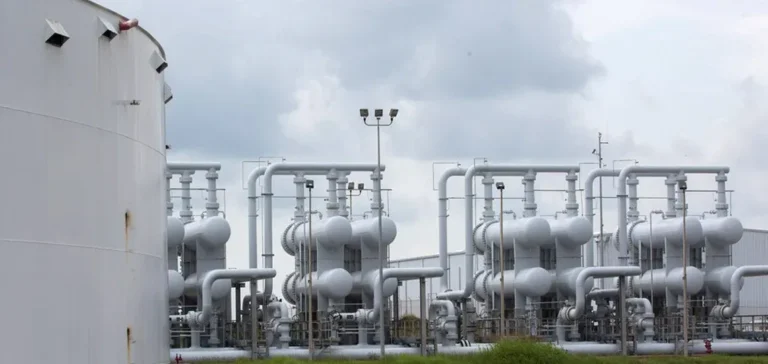In July 2025, China continued to store crude oil, even as its refineries operated at high capacity. According to data released by Chinese statistical authorities on August 15, 2025, refining units processed 14.85 million barrels per day (bpd), an 8.9% increase compared to July 2024. Despite this rise, a surplus of 530,000 bpd was recorded, resulting from a total availability of 15.38 million bpd combining domestic production and imports.
This surplus, down from 1.42 million bpd in June, reflects an adjustment in the management of strategic reserves. Refining capacity was accompanied by an improved utilization rate, which reached 71.84%, up 1.02 points from June and 3.56 points year-on-year. Domestic production stood at 4.27 million bpd, while imports accounted for 11.11 million bpd, reaffirming China’s role as the world’s largest crude oil importer.
High Processing Rate and Stockpile Growth
Over the first seven months of the year, the average surplus reached 980,000 bpd. Since March, the simultaneous rise in imports and domestic output—exceeding refined volumes—has contributed to inventory accumulation. According to a spokesperson from the National Bureau of Statistics, these surplus volumes provide flexibility to adjust imports based on market conditions.
Not all surplus oil is necessarily stored. Some volumes may be processed in facilities not covered by official data. However, the observed trend suggests a stockpiling strategy in response to oil price uncertainty.
Price Movements and Import Adjustments
Fluctuations in global prices directly influence import decisions. Between January and May 2025, Brent crude prices fell from $82.63 to a low of $58.50, encouraging increased purchases. In June, prices rebounded to $81.40 before declining to $65.57 in early August, prompting refiners to consider reducing orders planned for late summer.
The increase in official selling prices by Saudi Arabia for August and September cargoes could further drive this reduction trend. However, ongoing domestic demand and the rise in fuel exports, including gasoline and diesel, may sustain high refining activity in the coming months.
Energy Strategy and Stable Supply
The ability of refiners to draw on stockpiles serves as a strategic lever to absorb price shocks while meeting domestic market needs and export demands. This inventory management approach contributes to securing fuel supply chains in a context where decisions are shaped by pricing, domestic consumption, and export flows.






















